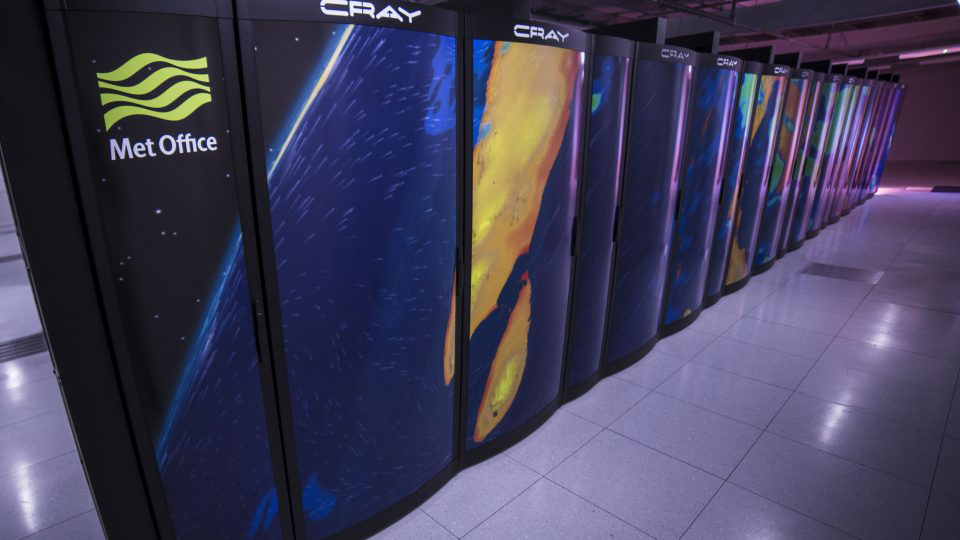Microsoft is building the UK's fastest supercomputer, powered entirely by renewable energy
Expected to save 7,415 tonnes of CO2 in first year of service.

This story came across my desk under the label 'big computer', the understanding being that any big chunk of silicon and cables will pique the interest of a few hardware buffs. It's certainly caught my attention, at least, not just because the UK's Met Office has teamed up with Microsoft to build a colossal supercomputer to track the weather and better understand climate change, but because it'll be powered entirely by renewable energy.
The Met Office, the agency in charge of all the UK's meteorological needs, says the new supercomputer will deliver more accurate weather models and scenarios, aid projections and forecasts, and help the agency monitor and anticipate extreme weather caused by climate change.
There's at least £1.2bn being chucked at the project, which will net a state-of-the-art computer with more than double the processing power of any in Britain today.
The complete tech specs haven't been disclosed yet, therefore we don't know who's chips are powering the thing, but it's said to be capable of 60 petaflops of processing power. The world's fastest supercomputer, Fugaku in Japan, is capable of ~420-440 petaflops by the staple LINPACK benchmark, so assuming measurement by a similar metric, you're looking at a machine seven times slimmer than today's best.
That's still mighty quick, however, and will net this supercomputer a spot in the top 25 when it arrives next year.
The supercomputer will be built with help from Cray, now owned by HP Enterprise. Cray has used Nvidia, Intel, and AMD chips in past projects, so the door's open to any number of combinations of possible CPUs and GPUs from the companies most associated with gaming PC hardware.
Those powerful GPUs are handy for much more than gaming, as we've felt first hand with the latest cryptocurrency mining boon.
Keep up to date with the most important stories and the best deals, as picked by the PC Gamer team.

Best CPU for gaming: the top chips from Intel and AMD
Best graphics card: your perfect pixel-pusher awaits
Best SSD for gaming: get into the game ahead of the rest
Importantly, though, this machine will operate on 100 percent renewable juice. Which feels a smart move not just for the environment but because this machine will spend a lot of its time measuring and analysing climate change.
"As climate change develops and policymakers make choices about how much bigger a tidal barrier we need or where to build flood defences, your home won’t flood and you’ll think you were lucky, but you won’t be lucky, other people will have planned for you, to say, well actually, we know how big a tidal surge could get because it’s been well modelled, we understand the flood risk from more intense surface rainfall and therefore we’ve prepared in advance, so a lot of that is actually the downsides you won’t see as well as the upsides you will see," Penny Endersby, chief executive of the Met Office, says (via The Guardian)—presumably without taking a breath.
So a big computer, yes, but also a very useful and resourceful one.

Jacob earned his first byline writing for his own tech blog, before graduating into breaking things professionally at PCGamesN. Now he's managing editor of the hardware team at PC Gamer, and you'll usually find him testing the latest components or building a gaming PC.

